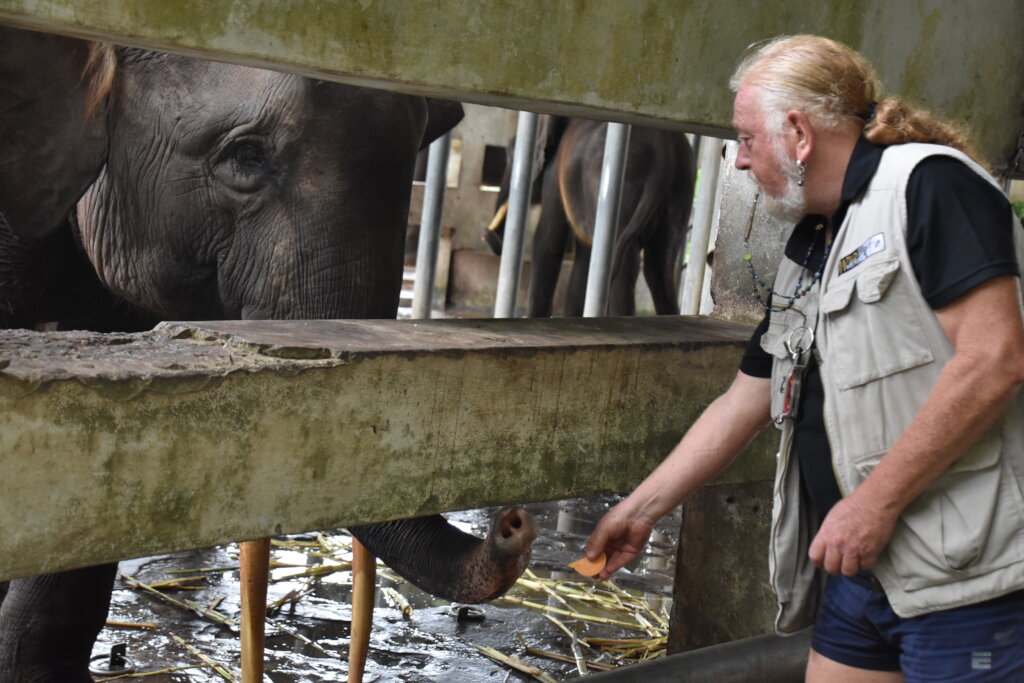
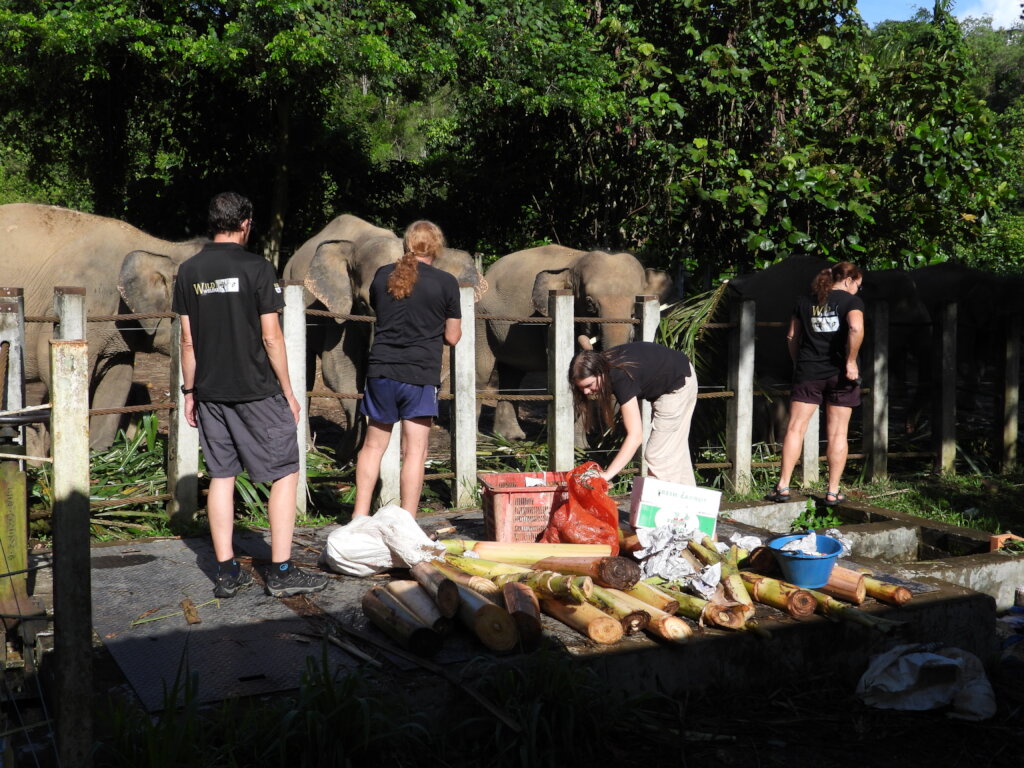
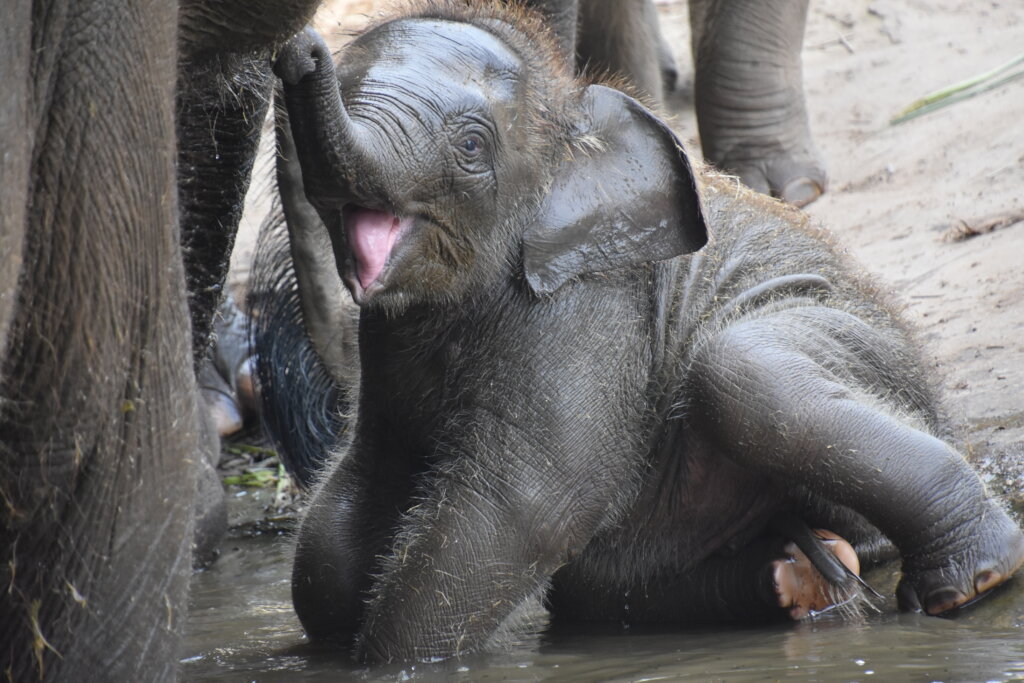
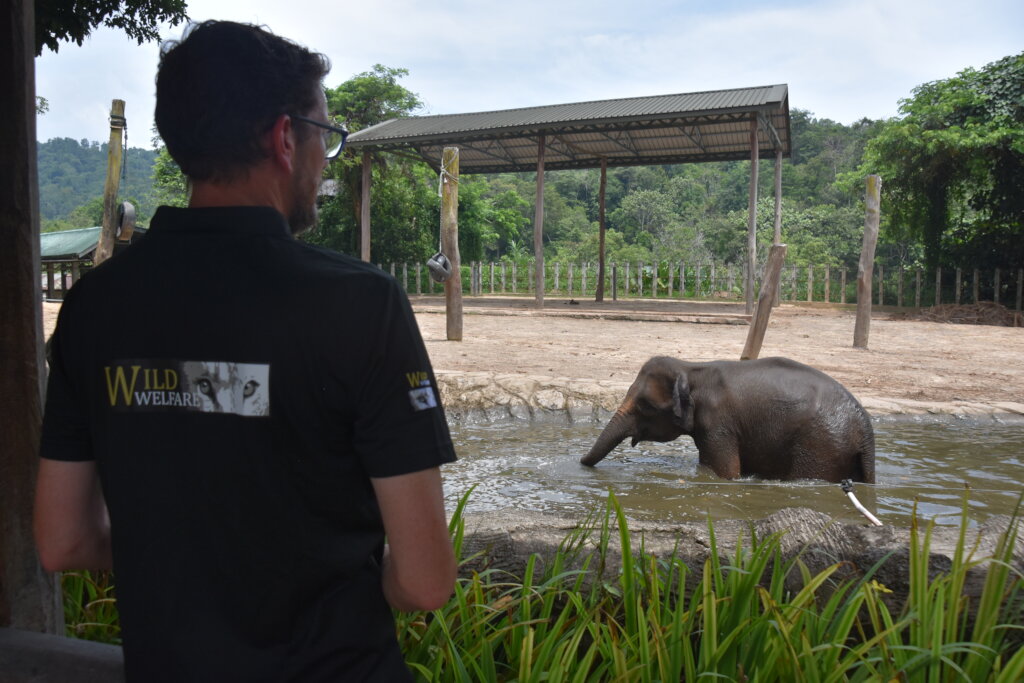
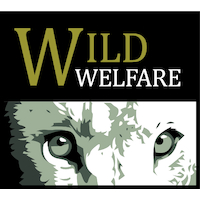
Our mission is to unite the world's leading zoos and animal welfare organisations to improve the welfare of captive wild animals around the world. Zoos and aquariums can play an integral role in all our lives with the power to shape the way we feel and care for animals, while influencing change in attitudes and action towards the protection of our global fauna and flora. Unfortunately, not all zoos are equal and as a result of poor care, real animal suffering is prevalent around the world. It is likely only a small percentage of the estimated more than 10,000 zoos and aquariums that exist globally fall under country-wide animal welfare legislation and/or guiding principles from a zoo as... read more Our mission is to unite the world's leading zoos and animal welfare organisations to improve the welfare of captive wild animals around the world. Zoos and aquariums can play an integral role in all our lives with the power to shape the way we feel and care for animals, while influencing change in attitudes and action towards the protection of our global fauna and flora. Unfortunately, not all zoos are equal and as a result of poor care, real animal suffering is prevalent around the world. It is likely only a small percentage of the estimated more than 10,000 zoos and aquariums that exist globally fall under country-wide animal welfare legislation and/or guiding principles from a zoo association. A much more significant number fall outside any such protection, so despite significant advances in animal welfare science, poor animal welfare is still widely observed in many zoos around the world. Every year Wild Welfare's projects support welfare improvements for thousands of wild animals living in captivity in zoos and aquariums around the world. Our work is helping a whole range of species from large mammals including carnivores, primates and monkeys to reptiles and exotic birds by encouraging improvements in animal care practices to bringing in new facility, regional and national welfare policies and regulations. Through support, training and positive partnerships, we help improve animal welfare where it is needed the most. Our aim is to achieve what we all want to see: a world where every zoo and aquarium promotes the highest standards of animal care and welfare. From rehoming bears in Japan to training veterinarians in Indonesia, our work is varied and vast but we have one focus: improving care and welfare for wild animals living in captivity around the world. Our History Wild Welfare was established in 2012 and has rapidly established itself as an internationally recognised hub of expertise in zoo animal welfare reform, forming effective collaborative relationships with a number of zoos, regional zoo associations, animal welfare NGOs, reputable universities and professional bodies. It is the first project-led captive wild animal welfare initiative that is solely focused on improving welfare standards by uniting zoos and animal welfare NGOs around the world. We play a pivotal role in the on-going improvement of animal welfare in zoos as well as providing critical support to other institutions that want to end unacceptable wild animal welfare practices. We help facilitate positive dialogue between zoo professionals, zoo associations and global animal welfare NGOs, creating a positive international captive animal welfare movement through an informed expert approach and the establishment of strong partnerships between key stakeholders. We strongly believe in a creative and compassionate approach to captive wild animal welfare, and our up to date, scientific-led materials and resources encompass the ethics, ethology, and husbandry pertaining to captive wild animals. The issue of poor wild animal welfare and abuse cannot be resolved single-handedly. However, together we can make a real effort to improve the welfare for many wild animals around the world, and collectively help change minds, attitudes and practices. The Global Challenge The exact number of zoos and zoological type exhibits and collections around the world is actually unknown. It is however believed that only a small percentage of these fall within some form of organised ethical and welfare framework. Sadly, poor captive animal welfare is often widely prevalent within the institutions that fall outside of recognised welfare standards, resulting in the suffering of thousands of animals. As more developing countries try and attain animals and collections that western society has previously dictated, our efforts to ensure animal welfare concepts and high standards of care are provided, is needed even more now than ever. From a conservation perspective, globally, zoos significantly contribute to a diverse conservation effort, uniting to address the decline of a vast number of species and habitats. However, under-developed zoos, often found in countries struggling to manage regional declines in biodiversity, have limited expertise and resources to contribute to these programmes, limiting the value of the global effort. Captive wild animal collections around the world with poor standards of animal welfare can also be participants and recipients in the burgeoning, illicit wildlife trade. The Welfare Problem In this modern media world, now more than ever, zoos are under the spotlight when it comes to their animal care. Societal and zoo community interest in the welfare of animals in zoos is at an all-time high and rightly or wrongly, accessible information means that zoos are more easily criticised on their animal care, education and conservation conduct. Some very poor zoos where extreme welfare concerns exist are increasingly being highlighted within the national media and targeted by international and a growing national animal welfare community. And the welfare problem is real and vast. A lack of coherent and relevant institutional and national regulations can result in poorly managed facilities, exacerbated by poor basic care and a lack of visitor respect or awareness. Keepers within many zoos have basic or no animal management backgrounds, and veterinary expertise and care is extremely limited for the specialist care sometimes required within an exotic captive collection. The result is the continued suffering of animals, frustration and limited training for zoo staff and inadequate protection legislation, monitoring and evaluation of animal welfare management. To address these issues Wild Welfare has identified and developed the following aims and objectives to deliver on our mission and vision to improve the welfare of wild animals living in captivity around the world. Our Aims and Objectives 1). To support a wide and diverse range of zoos and aquariums around the world to improve their animal welfare through on-going training and capacity development. We develop skills in animal husbandry and assessment teaching and sharing knowledge and information of all aspects of captive management while building relationships which can lead to further academic, government and research collaboration. 2). To encourage a global reduction in poor welfare practices and improvements in animal welfare understanding in all the facilities we work directly and indirectly with, and a reduction in acute, detrimental welfare practices such as circuses, and animal abuse. 3). To develop Animal Welfare competency programmes within countries where they currently don't exist, based on international standards that can be used to evaluate, monitor and ensure compliance to high standards of animal care 4). To develop and disperse novel and accessible educational tools and smart software technology that encourages participation in engaging learning programmes on animal care. 5). To develop technical and legislative zoo welfare standards adopted where there currently are none by national legislators and implemented in a nationwide programme. 6). To empower professional and public communities and support globally accredited welfare initiatives that provide long-term solutions, not just quick fixes.


Each of GlobalGiving’s nonprofit partners is required to send quarterly donor reports detailing the impact of their work. Here are some of their recent updates: